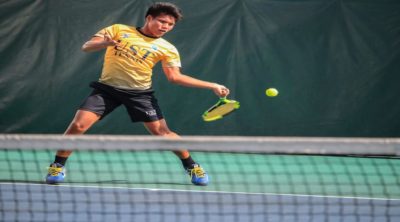Along with apt training, mental preparation is also required for giving the best in any sport. In this article we are going to understand some of the sports psychology techniques, that make an important feeding to encourage victory.
The dedication to winning any sport does not lie only in the physical endurance of an athlete or sportsman, it is the mental and psychological ability that triggers energy towards achievement of the goal. The mind is faster, sharper and stronger than the body. And we all would agree. This applies more aptly in sports, as the physical strength and valor is strongly controlled by the emotional and mental chords of a sportsman. When training for sports, most expert trainers and coaches are now including sports psychology techniques as one complete aspect of learning and development, along with physical training.
As we know any area of sports requires training to master the sport, this begins with physically preparing the sportsman or athlete. But what is also important is training the mind in such a way, that it delivers the best of an athlete’s skills and utilizes his physical capacities to the fullest.
Why Sports Psychology is Important
Practicing before the coach and the team is totally different from what it is like to play on the field against competitors and amongst thousands of spectators. Tension builds up in the athlete as the moment of play draws closer. The stress and pressure mount up in cold sweat, with the rise of fear. During this time what is important is focus and building confidence. Not letting the goal blur, and extracting the best of skills and capacities is required even in tense moments. Sports psychology is actually a study of all these aspects of an athlete and its application, that helps eliminate negative attitude and behavior. This study helps the athlete gain focus in the crowds, builds positivity and strength, and develops strategies to win the game even in the toughest of levels in a game.
Techniques in Sports Psychology and Benefits
We have enlisted the major techniques used in sports psychology. These are the pillars and the base of many other techniques and aspects that are developed and used. Let us understand each in the following:
Relaxation and Activation
Relaxation is the space that the athlete gives to the body and mind, to ease out and heal all the strained muscles due to stress. This also helps to create a state of maximum focusing power and execution of imagery and illustration. Relaxation will create just the right amount of excitement and nervousness required for the game, in case of a hyper excited, nervous athlete. Understanding the athlete’s condition before this technique is important.
Focus and Concentration
Relaxation creates conditions in the body and mind that can conceive maximum focus and concentration. Focus is very important. As while on the field, the numerous internal and external distractions like commentary, coach, spectators, the pressure to win, weather conditions, possible flaws, low energy, performance anxiety and negativity can hamper an athlete’s capacity to deliver his 100%, which he is capable of. To help, many coaches and trainers, insist on increased focus, that is to create a world in the mind of short goals that ultimately lead to the longer goal. According to experts the focus should be on creating realistic, tough, but possible goals.
Imagery and Visualization
Visualizing or imagining positive sportsmanship is a way to let your confidence get a boost. Imagery is to create a live scene in the mind and conscience, about exclusive strategies, fair play, maximum positive energy. Once this gets created in the mind, while on the field in the real game, the mind can interpret them easily as similar, improving your mental performance. This is like a mental recall of the physical strengths, skills and capacities of the athlete. Clearly visualizing the goal and target is a boost to make sure the athlete uses his energy to the optimum.
Flow
Flow as the word defines, is a non stoppable and easy output. In this case it can be more related to a natural execution of the strategies and game with a balanced mind. The feeling from within of being energetic, focused, sharp and prepared to deal with an unplanned event during the sport is what defines flow. Here the athlete does not require to make effort to attain focus and concentration. Flow is possible when the athlete is completely drenched in the game and this can be possible with attaining relaxation, imagery and focus.
There are many exercises that enable to attain the above mentioned techniques in sports psychology. There are many stages that follow these techniques. Right from preparation before the game, and on the field too. In the study, these principles are first explained well, then they are practiced, after which they are finally executed during the game. A lot of other factors too contribute to this theory. Every athlete has his/her own curve to these techniques that make it work well.
Every athlete is different and so is every game. Personalized implementation of these techniques according to the requirement, gives maximum results. After all it is a game, win or lose, what is important is that the athlete gives his best game and that too with a true spirit of sportsmanship.


